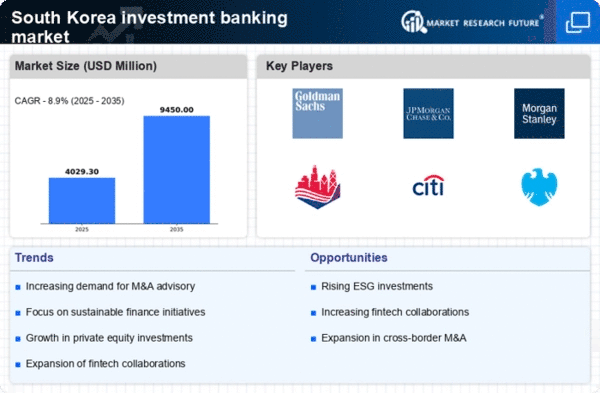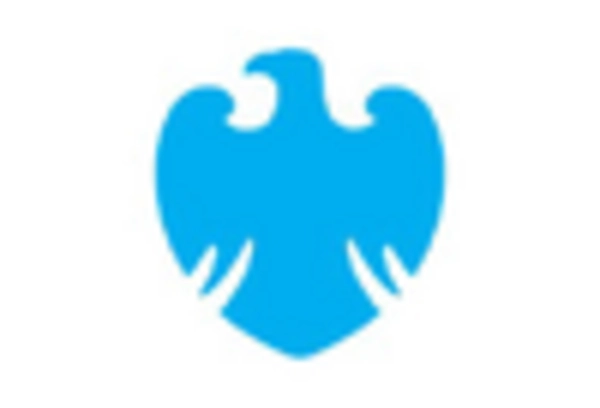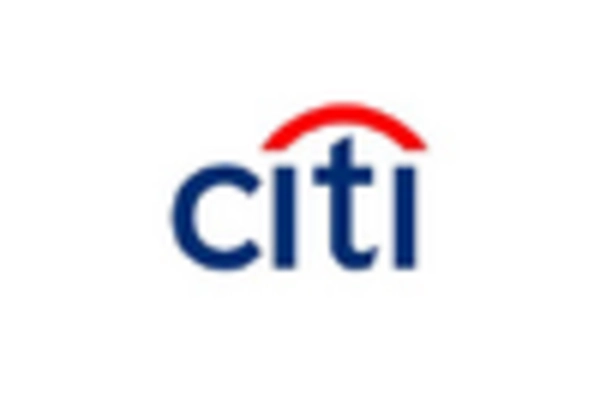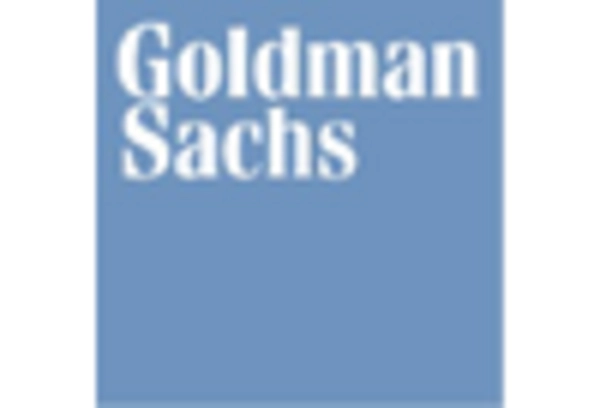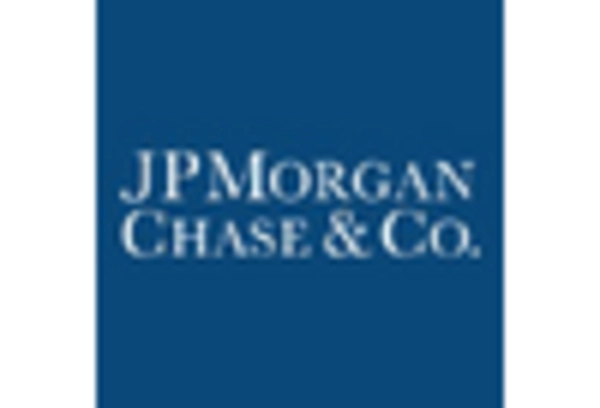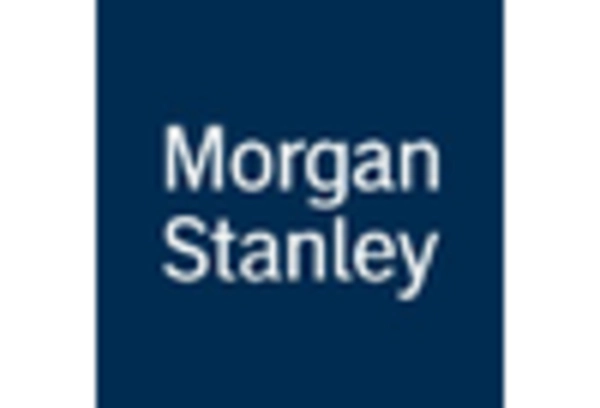Increased M&A Activity
The investment banking market in South Korea is witnessing a notable increase in mergers and acquisitions (M&A) activity. In 2025, the total value of M&A transactions is anticipated to exceed $30 billion, driven by a combination of domestic and cross-border deals. This uptick in M&A activity is largely attributed to companies seeking to enhance their competitive positioning and diversify their portfolios. Investment banks are pivotal in this process, offering expertise in deal structuring, valuation, and negotiation. Additionally, the trend of conglomerates seeking to streamline operations by divesting non-core assets is likely to further fuel M&A transactions. As firms navigate these complex transactions, the demand for investment banking services is expected to rise, positioning the industry as a key player in shaping the corporate landscape in South Korea.
Regulatory Framework and Compliance
The investment banking market in South Korea is significantly influenced by the evolving regulatory framework. Recent reforms aimed at enhancing transparency and investor protection are reshaping the operational landscape for investment banks. The Financial Services Commission (FSC) has introduced new compliance requirements that necessitate investment banks to adapt their practices accordingly. This regulatory evolution may lead to increased operational costs for firms, but it also presents opportunities for investment banks to offer advisory services related to compliance and risk management. As companies strive to meet these new standards, the demand for specialized investment banking services is likely to grow. Furthermore, the emphasis on corporate governance and ethical practices is expected to enhance the reputation of the investment banking market, attracting more clients seeking reliable financial partners.
Economic Growth and Investment Opportunities
The investment banking market in South Korea is currently experiencing a surge due to robust economic growth. The country's GDP growth rate is projected to be around 3.5% in 2025, which is likely to stimulate increased corporate activities and investment opportunities. As companies seek to expand, they often turn to investment banks for advisory services, capital raising, and mergers and acquisitions. This trend indicates a growing reliance on investment banking services, as firms look to navigate complex financial landscapes. Furthermore, the influx of foreign direct investment (FDI) into South Korea, which reached approximately $20 billion in 2024, is expected to further bolster the investment banking market. This economic environment creates a fertile ground for investment banks to thrive, as they play a crucial role in facilitating transactions and providing strategic guidance to businesses.
Technological Advancements in Financial Services
The investment banking market in South Korea is being transformed by rapid technological advancements. The integration of fintech solutions is enhancing operational efficiency and client engagement. Investment banks are increasingly adopting artificial intelligence (AI) and big data analytics to streamline processes such as risk assessment and market analysis. This technological shift is likely to improve decision-making capabilities and reduce transaction times, thereby attracting more clients to investment banking services. Moreover, the rise of digital platforms for trading and investment management is reshaping how investment banks interact with their clients. As these technologies continue to evolve, they may create new business models and revenue streams within the investment banking market, positioning firms to better serve the needs of a tech-savvy clientele.
Growing Demand for Sustainable Investment Solutions
The investment banking market in South Korea is experiencing a growing demand for sustainable investment solutions. As environmental, social, and governance (ESG) considerations gain prominence, investors are increasingly seeking opportunities that align with their values. This trend is prompting investment banks to develop and promote sustainable finance products, such as green bonds and ESG-focused investment funds. In 2025, it is estimated that the market for sustainable investments in South Korea could reach $15 billion, reflecting a shift in investor preferences. Investment banks are well-positioned to capitalize on this trend by providing advisory services and structuring innovative financial products that meet the evolving needs of socially conscious investors. This focus on sustainability not only enhances the reputation of investment banks but also contributes to the broader goal of fostering responsible investment practices.


